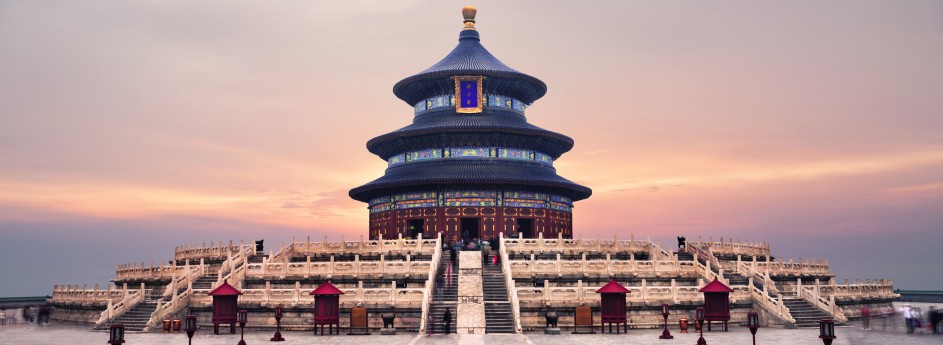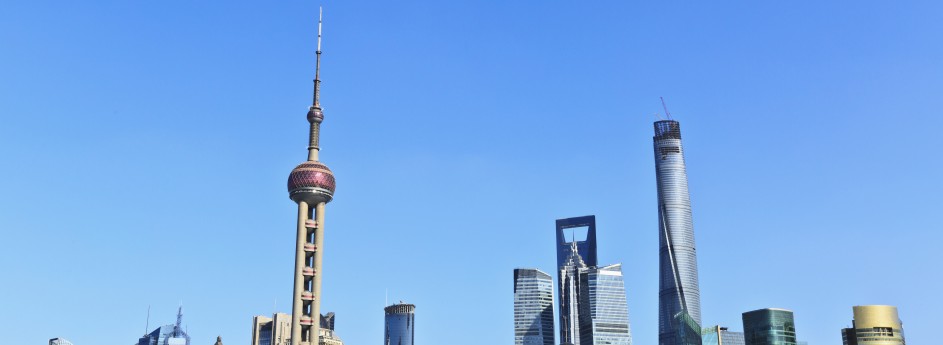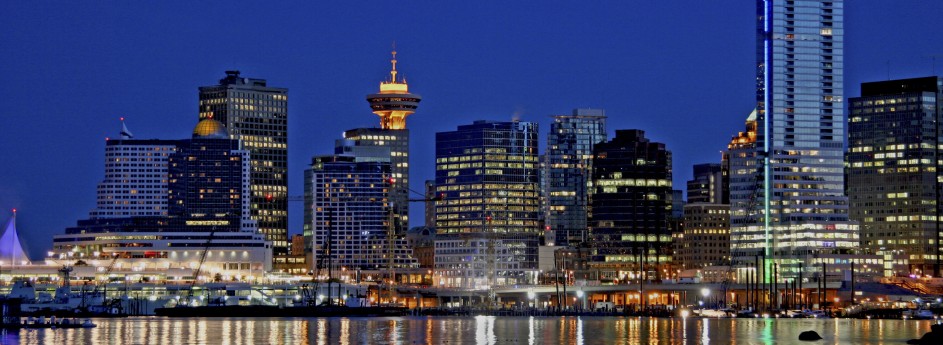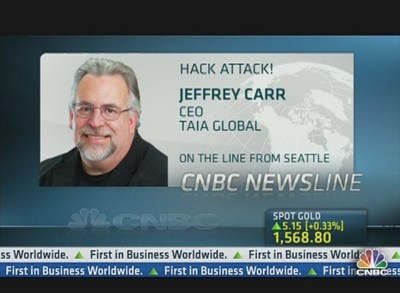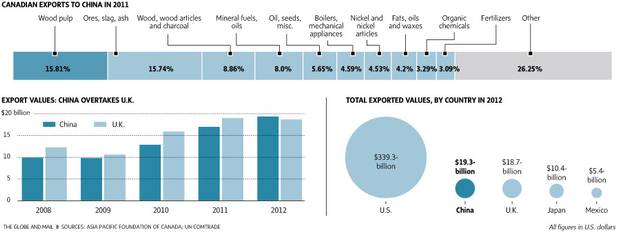Everyone Hacks Everyone Else
Given all the hoopla about China’s hacking of Western companies and institutions, the dirty truth is that everyone hacks everyone. Here’s an opinion piece on Tech in Asia and a report on CNBC citing a hacking expert:
China has been involved in an awful lot of hacking incidents recently, from the New York Times scandal all the way up to the recent revelations about military hackers. So I suppose that when a new hacking story comes out, it does make some sense that people would suspect China. That’s understandable.
But privately suspecting something and publicly reporting it are two very different things. On the heels of Apple’s announcement that it had also been hacked, many media outlets strongly implied that China was responsible. Others just came right out and said China was involved right in the headline. The problem with that is that it isn’t true. At all.
In fact, the hacks of Twitter, Facebook, and Apple all seem to have come from Eastern Europe, not China. As I mentioned previously, it’s not unreasonable that people think about China first when they hear a high-profile hacking story, as the country has been involved in a lot of them.
And China’s protestations that it doesn’t actively engage in hacking and other forms of cyberwarfare are patently ridiculous. Of course China is trying to hack other governments and foreign countries. But here’s the thing: everyone is trying to hack everyone all the time.
In this day and age, there is simply no way that any country big enough to have its own intelligence agency does not also have government-funded web experts looking to attain valuable intelligence through the web via any number of means, including hacking. China may be involved in more hacking than other countries, but it could also just be less good at getting away with it.
Either way, let’s all try not to jump to the conclusion that it was China the next time you hear a hacking story. Or, if you do jump to a conclusion, at least try not to print it in The Atlantic before it has actually been confirmed.
————————-
On Thursday, Taia Global’s CEO Jeffrey Carr took up for China, questioning why China is the only country that seems to be accused of cyber attacks.
“We know that many countries are engaged in these activities and yet only China ever seems to be caught, which to me, again statistically, appears to be an impossibility,” Carr, who is also a cyber security analyst, told CNBC Asia’s “Squawk Box.”
Carr attacked the report for unfairly targeting China specifically and leaving out other countries, which are known to be embroiled in cyber security espionage, including Russia, for instance.
Russia was accused of launching cyber attacks on Estonia in 2007 after a Soviet war memorial was moved in Tallinn, Estonia and was condemned by the Kremlin, the BBC reported at the time.
“They tend to focus only on China, when in fact there are many countries that engage in intellectual property theft or trade secret theft. So this unnecessarily escalates tensions between the U.S. and China when it doesn’t have to be,” he said.
Carr also launched a scathing attack on inaccurate methodology used in the Mandiant report.
“I have problems with the report. One, that they never established that the Chinese military is doing the hacking, that’s the report’s big announcement,” said Carr. “It’s the Chinese military, it’s this particular People’s Liberation Unit (PLA) unit based in Shanghai, and they never established that that is true. In order to do that they have to eliminate all other possibilities and they failed to do that,” he said.
According to Carr, Mandiant’s cited methods of using Internet Protocol (IP) addresses and strings of code to identify the location of a computer or device to source the location of the hackers are invalid and using these tools provided an “exceedingly weak piece of evidence”.
“[Using] IP geographical location is extremely unreliable. But even if you accept it as valid, it’s only geo-locating to that portion of Shanghai, which happens to have five million people. It’s a major metropolitan area and it’s a hub for financials and business. So it means nothing. Every major city in China has a PLA outpost,” he said.
China Now #2 Importer of Canadian Goods
China has surpassed Britain as Canada’s No. 2 export destination, a milestone in the inevitable shift from the stagnant Old World to faster-growing emerging markets.
Canadian goods exports to China surged 15 per cent last year to $19.3-billion, paced by a near-doubling of canola seed and canola oil shipments, according to newly tabulated government trade figures.
It’s a case of “China meets Saskatchewan,” Dan Ciuriak, former deputy chief economist at the Department of Foreign Affairs and International Trade, said of the numbers showing China topping Britain for the first time. Exports to Britain fell nearly 1 per cent to $18.6-billion.
“In a big-picture sense, it’s just an inevitable reality that as China becomes larger, it would overtake the Old World,” said Mr. Ciuriak, now a consultant. “It was just a question of time.”
Canada isn’t alone in being touched by China, which surpassed the United States as the world’s largest goods trading nation in 2012. The U.S. still does more overall trade if services are included.
Canada’s exports to China have nearly doubled between 2008 and 2012, a period in which the country’s overall exports fell nearly 1 per cent. Canadian exports to China of bulk commodities such as coal and iron ore were also up sharply last year.
China’s economy has been growing at 10 per cent a year for most of the past decade and is hungry for the resources that Canada has in abundance. Europe, on the other hand, has been stagnant for the past four years, with some countries in a deep recession.
Canada’s trade with China is destined to increase both because the country is growing so fast and because the countries’ main products complement each other, Mr. Ciuriak said. “We’re very natural trading partners.”
– Globe and Mail
KMT to Withdrawal Troops from the Kinmens
Another sign of ever warmer ties between the mainland and Taiwan.
———————–
Taiwan plans to withdraw troops from two islets near the Chinese mainland and will turn the former battleground into a tourist attraction as relations improve, officials said Wednesday.
The two tiny islets, Tatan and Ertan, form part of the Taiwan-controlled Kinmen island group off southeast China’s Xiamen city and are currently manned by around 120 soldiers.
Kinmen county magistrate Lee Wuo-shih Tuesday discussed the plan for the two islands with minister without portfolio Lin Cheng-ze.
“The minister has in principle agreed to our plan of troop withdrawal from the two islets… once the plan is completed, it will be another crucial sign of the improving ties between Taiwan and the mainland,” Lee told AFP.
The two islets, which together have an area of little more than one square kilometer (0.4 square mile), are about four kilometres (2.5 miles) from Xiamen at the nearest point.
While the two islets may soon be emptied of soldiers, there is no indication that Taiwan will terminate its garrison on much-larger Kinmen island any time soon. The exact number of soldiers there is a secret.
Lee said he was confident that reminders of a fierce 1950 battle on the two fortified islets would lure visitors from both Taiwan and the Chinese mainland.
“Various sites related to the battle remain intact. This is bound to attract a lot of interest from tourists,” he said.
According to Taiwan’s military authorities, a 300-strong Taiwanese garrison wiped out more than 700 Chinese troops trying to land on the fortified frontline islets following an intensive artillery bombardment in July 1950.
The battle was part of the Chinese communists’ attempts to invade Taiwan, where troops led by Chiang Kai-shek took refuge after being driven from the mainland at the end of a civil war in 1949.
– AFP

